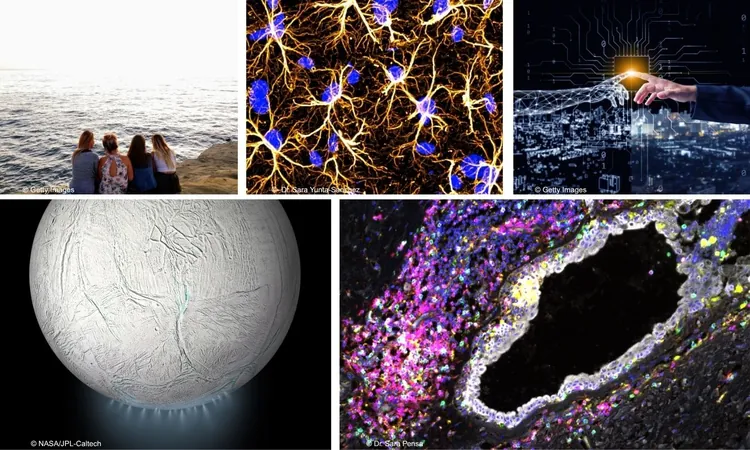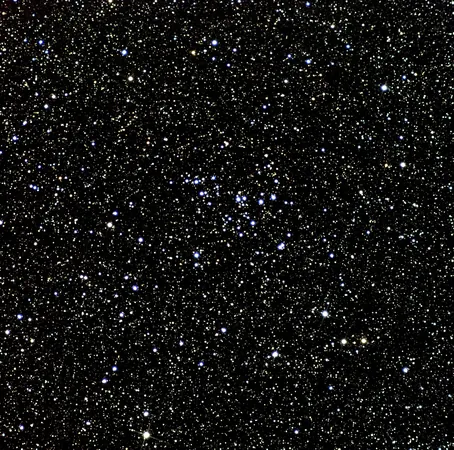
Exciting Advances in Research: GRANTS 2024 Unveils Groundbreaking Projects
2025-06-17
Author: Nur
Tackling Breast Cancer on a Cellular Level
At the University of Cambridge, Professor Walid Khaled and his dedicated team are diving deep into the pre-cancerous changes that occur at the cellular and molecular levels, specifically targeting individuals with inherited genetic mutations like BRCA1, BRCA2, and PALB2. These crucial genes play a vital role in repairing DNA and preventing unregulated cell growth, which can lead to cancer. Unfortunately, mutations in these genes significantly heighten the risk of various cancers, particularly breast cancer.
Armed with over two decades of research experience, Professor Khaled's project aims to explore how breast tissue evolves over time, identifying early cancer indicators. Intriguingly, the team plans to test both approved and almost-approved medications to intervene in these changes, with the ultimate goal of developing a preventive vaccine for individuals with these mutations. If their groundbreaking approach proves successful, it could pave the way for clinical trials, potentially halting breast cancer before it even starts.
Uncovering Hidden Oceans on Icy Moons
In a remarkable shift from terrestrial health to outer space, researcher Stéphanie Cazaux is focusing on the mysterious oceans lurking beneath the icy surfaces of Jupiter and Saturn's moons. These concealed bodies of water are hot spots—literally—for the potential existence of extraterrestrial life. Upcoming missions by ESA and NASA will target these enigmatic environments.
While direct access to these hidden oceans remains a challenge, Cazaux's pioneering study aims to understand how these subsurface oceans interact with icy surfaces. By examining how oceanic materials reach the surface—possibly through geysers or molecular diffusion—she hopes to develop tools for tracking this 'leaking' process. Ultimately, this research will contribute to future missions like JUICE and Europa Clipper that aim for closer inspection of these potentially life-harboring moons.
Revolutionizing Personal Experiences with AI Twins
In a leap from space exploration to human experience, a fascinating project led by Albrecht Schmidt promises to reshape our interaction with artificial intelligence. Introducing Angelo, an ingenious AI twin designed to record and analyze an individual’s life experiences, thoughts, and reactions. This system utilizes comprehensive data—texts, conversations, images, and even eye movements—to create a tailored memory-based AI model.
Schmidt's objective? Develop AI twins that can amplify cognitive and social abilities, enabling users to enhance their decision-making and creativity through a personalized, interactive platform. By harnessing data from wearable technology, this project aspires to establish a new level of human-AI symbiosis that can simulate future scenarios and foster deeper personal connections.
The Science of Friendship: Understanding Social Bonds
Shifting gears to social connections, Antonia Hamilton is embarking on an innovative study to decipher how cognitive processes and behaviors contribute to building and sustaining friendships. She is introducing the SyncShareBond model, emphasizing key elements such as synchrony, homophily, and task collaboration as essential for forming friendships.
Hamilton’s research will employ both small- and large-group experiments to measure participants' brain activity and physiological responses while engaging in various collaborative tasks. By unveiling how these interactions cultivate social bonds and how they evolve over time, the team hopes to devise strategies that combat loneliness and enhance overall well-being. Together, these exciting projects funded in 2024 signify a transformative leap in health, space exploration, AI development, and social science.


 Brasil (PT)
Brasil (PT)
 Canada (EN)
Canada (EN)
 Chile (ES)
Chile (ES)
 Česko (CS)
Česko (CS)
 대한민국 (KO)
대한민국 (KO)
 España (ES)
España (ES)
 France (FR)
France (FR)
 Hong Kong (EN)
Hong Kong (EN)
 Italia (IT)
Italia (IT)
 日本 (JA)
日本 (JA)
 Magyarország (HU)
Magyarország (HU)
 Norge (NO)
Norge (NO)
 Polska (PL)
Polska (PL)
 Schweiz (DE)
Schweiz (DE)
 Singapore (EN)
Singapore (EN)
 Sverige (SV)
Sverige (SV)
 Suomi (FI)
Suomi (FI)
 Türkiye (TR)
Türkiye (TR)
 الإمارات العربية المتحدة (AR)
الإمارات العربية المتحدة (AR)